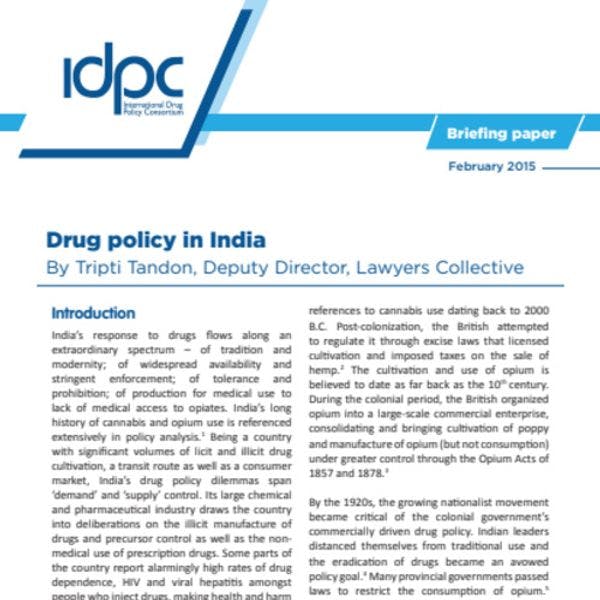Documento informativo del IDPC – Políticas de drogas en India
Este informe presenta un análisis detallado de las complejas políticas de drogas en India, incluida una panorámica del cultivo lícito e ilícito en el país, así como de su industria regulada para el cultivo de opio. Más información, en inglés, está disponible abajo.
Suscríbase a las Alertas mensuales del IDPC para recibir información sobre cuestiones relacionadas con políticas sobre drogas.
India’s response to drugs flows along an extraordinary spectrum – of tradition and modernity; of widespread availability and stringent enforcement; of tolerance and prohibition; of production for medical use to lack of medical access to opiates. India’s long history of cannabis and opium use is referenced extensively in policy analysis.
Being a country with significant volumes of licit and illicit drug cultivation, a transit route as well as a consumer market, India’s drug policy dilemmas span ‘demand’ and ‘supply’ control. Its large chemical and pharmaceutical industry draws the country into deliberations on the illicit manufacture of drugs and precursor control as well as the nonmedical use of prescription drugs. Some parts of the country report alarmingly high rates of drug dependence, HIV and viral hepatitis amongst people who inject drugs, making health and harm reduction important policy considerations.
While India’s harsh drug control laws (in particular the criminalization of drug use and the imposition of the death penalty for certain drug offences) conform strictly with prohibition, its regulated opium cultivation industry provides insights for countries that are experimenting with alternatives to prohibition.
Keep up-to-date with drug policy developments by subscribing to the IDPC Monthly Alert.
Descargas
Temas
Regiones
Perfiles relacionados
- International Drug Policy Consortium (IDPC)
